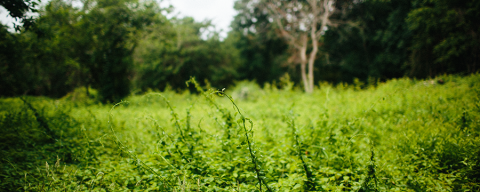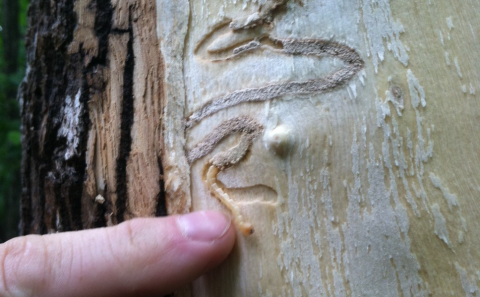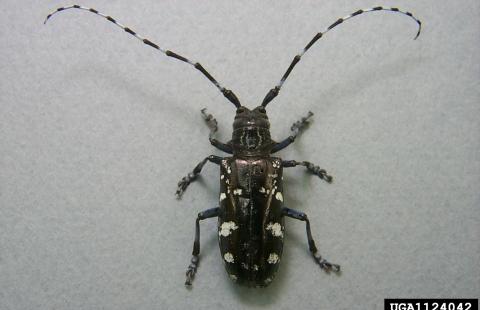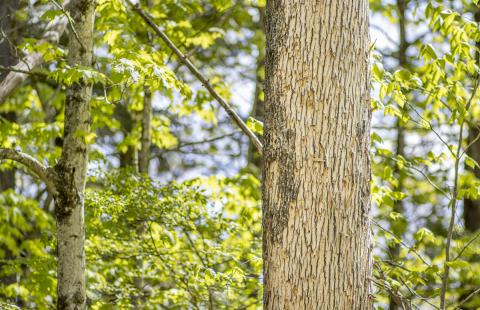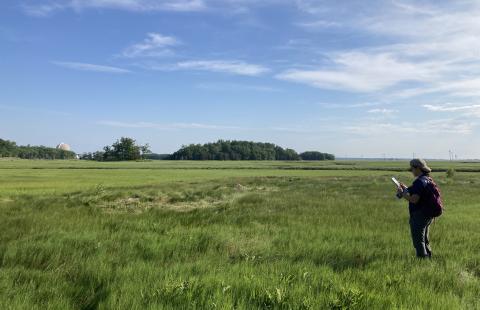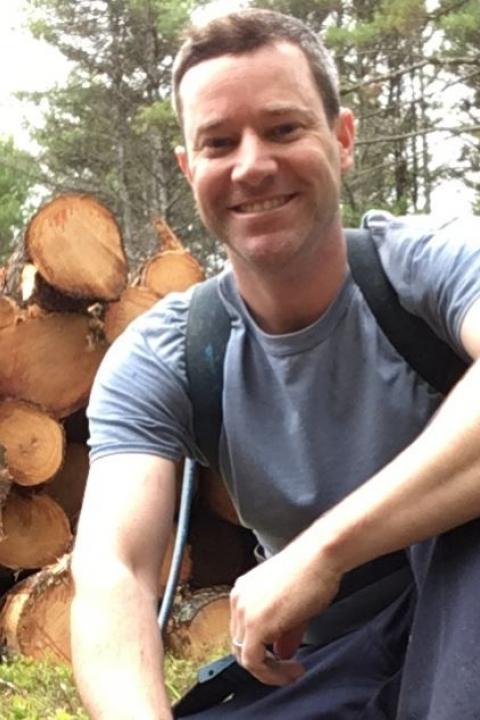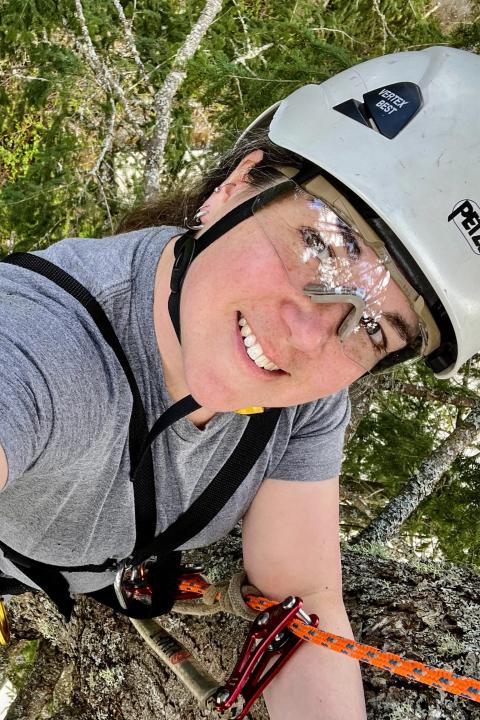An invasive is a plant or animal that is not native to a particular ecosystem, whose introduction does or is likely to cause economic or environmental harm, or harm to human health. It is capable of moving aggressively into an area, monopolizing light, nutrients, water, and space to the detriment of native species.
Below are resources you can use to identify, map, report and manage invasive plants and pests.
Invasive Pests
There are many different damaging insects and diseases that currently threaten New Hampshire's towns and forests. Most are not native to North America and can spread quickly. They can pose a serious risk to trees and forests. Learn to identify and report invasive forest pests through NHBugs, a collaboration of forest health agencies in NH.
Invasive Plants
Many familiar plants in our fields and along roadsides are not native to New Hampshire. While the majority cause no harm to forests, some do and are considered invasive plants. Invasive plants can reduce biodiversity, imperil rare species, reduce wildlife habitat, degrade water quality, reduce forest production and cause human health problems. Below are resources to help identify, map, report and management invasive plants.
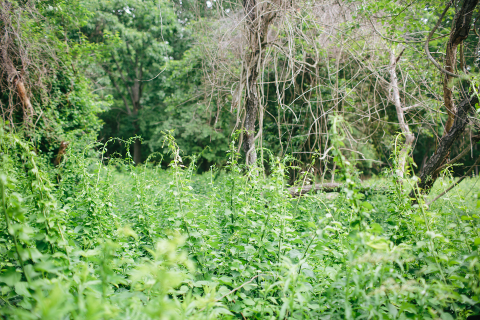
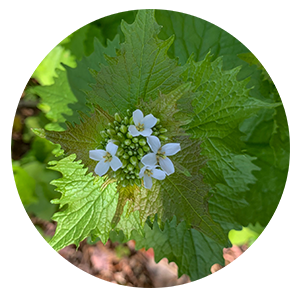
Learning to identify invasive plants is an important first step you can take to help stop their spread. Most invasive plants can be easily recognized with a few small tips. There are several invasive plant species that are considered early detection, meaning the species isn't well established in the state and we have an opportunity to stop it.
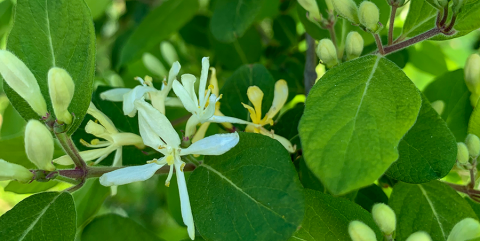
Detailed descriptions and photos of invasive plant species in NH, maintained by the NH Department of Agriculture Markets & Food Plant Industry Division.
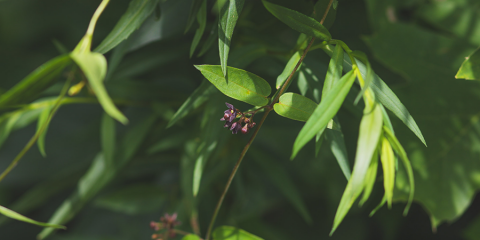
Videos explaining how to identify four early detection species: Perennial Pepperweed, Tree of Heaven, Black Swallow-Wort and Garlic Mustard.
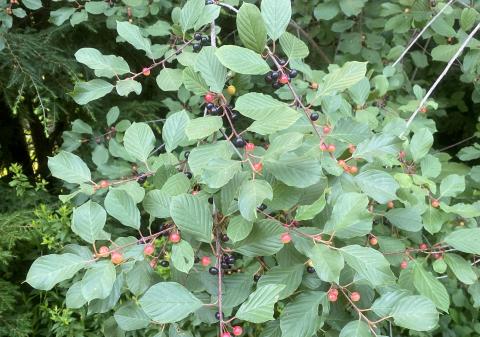
UNH Extension blogs on how to identify many of the most common invasive plants in NH.
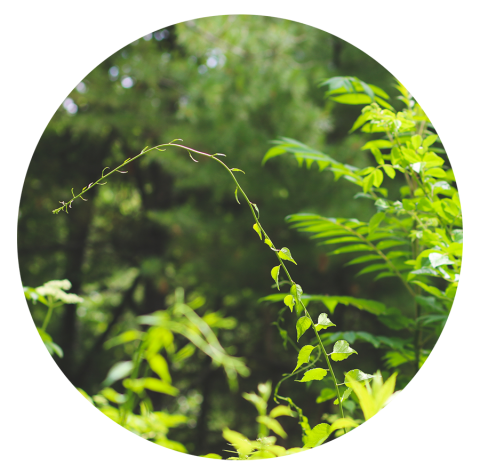
Figuring out where and how many invasive plants are in an area is an essential step to determining your management strategy. It is also important to report early detection species through EDDMapS, our state reporting system, so our state invasive species coordinator can act on the reports.
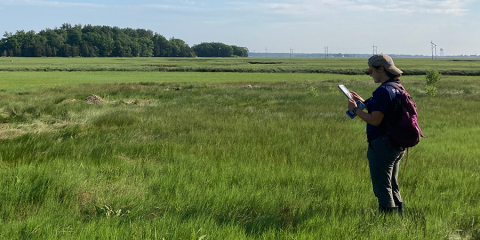
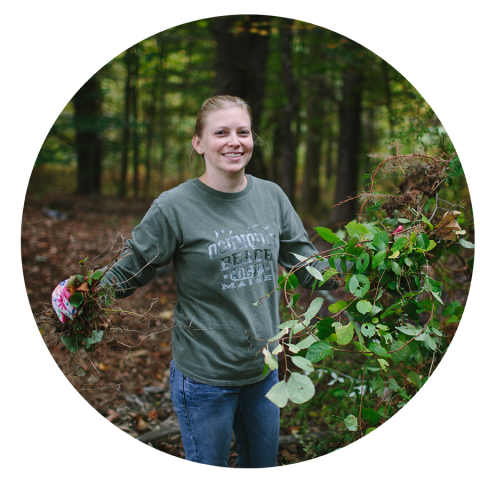
There is no one size fits all management strategy for invasive plants. Effective strategies depend on the species of plant and the goals of the property owner/manager. Below are a variety of resources to help you decide how to manage invasive plants.
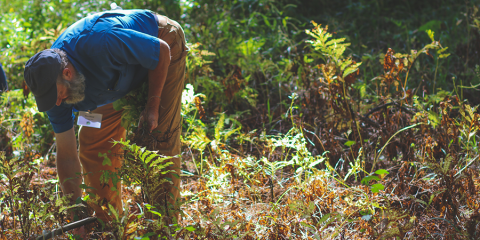
A resource from NH Fish and Game to help prioritize invasive plant management.
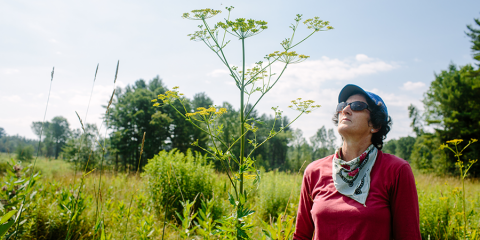
A collection of control resources organized by plant species or control method.
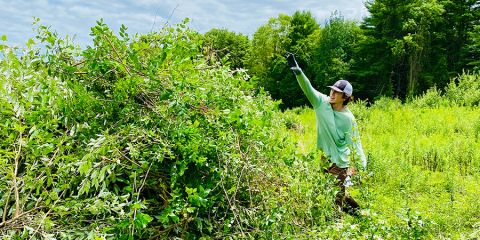
To prevent further spread, its very important to properly dispose of invasive plants.
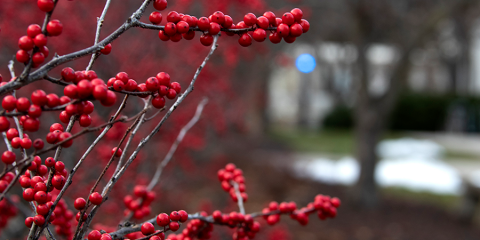
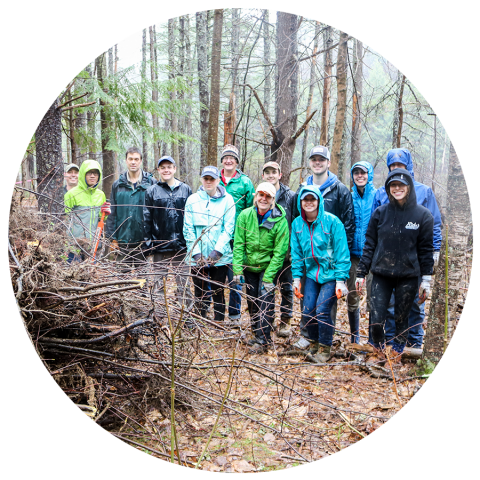
Working with your community to tackle invasive plants is a great strategy. You can collaborate with other volunteers or town groups to organize managing invasives in your community.
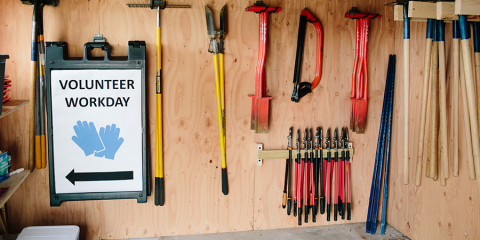
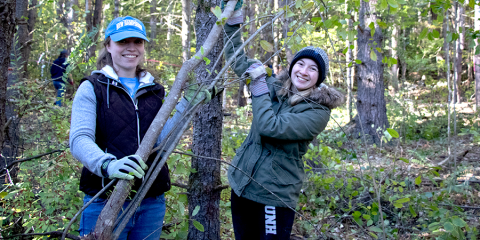
Post your community workday to Nature Groupie to help spread the word.
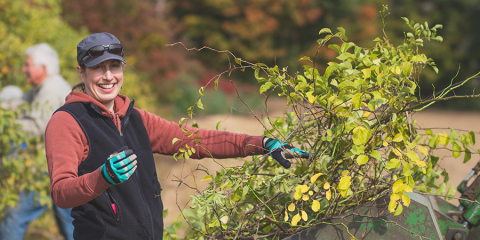
A collection of resources for community education on invasive plants in NH.

There are a variety of Natural Resource Professionals who can help provide guidance on property goals and planning, and advice on control strategies.
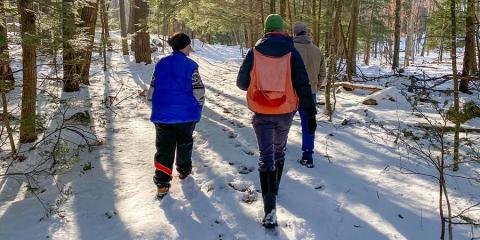
Extension Natural Resource Professionals can help by visiting your property
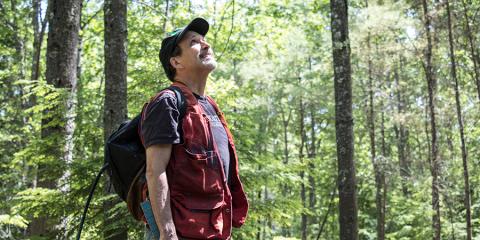
A directory of foresters licensed in New Hampshire, including licensed pesticide applicators.
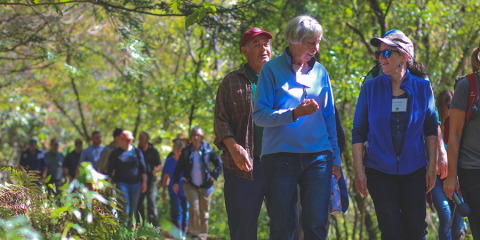
Held annually, the NH Invasives Academy is a training about management options for terrestrial invasive plants.
Pesticide Safety Education and Applicator Licenses
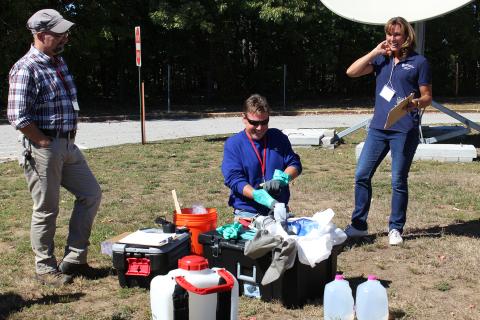
UNH Extension's Pesticide Safety Education Program provides educational resources and training programs for private and commercial pesticide applicator certification and online recertifcation. Our programs promote sound decision-making and protection of people and the environment.
Perennial Pepperweed Partnership
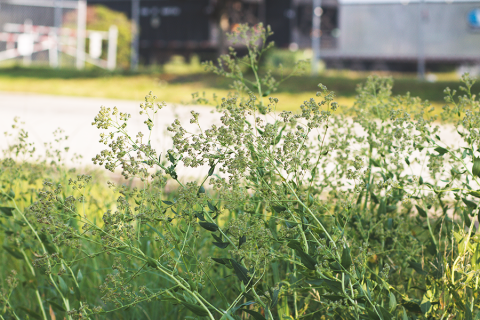
Pepperweed (Lepidium latifolium) is a relatively new invasive plant to Maine and New Hampshire, though it is well established just to our south in Massachusetts. UNH Extension is working with partners to map Pepperweed in Maine and New Hampshire and work towards eradication.
Spotlight on NH Invasives
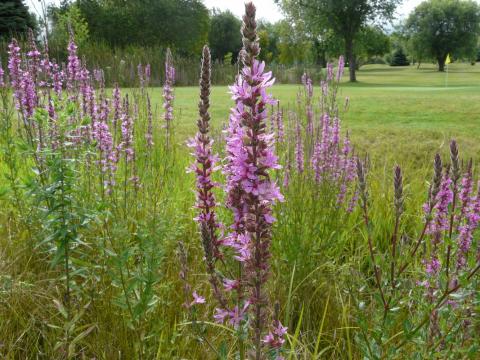
From UNH Master Gardeners, a series of blogs on how to identify and control common invasives in NH.
